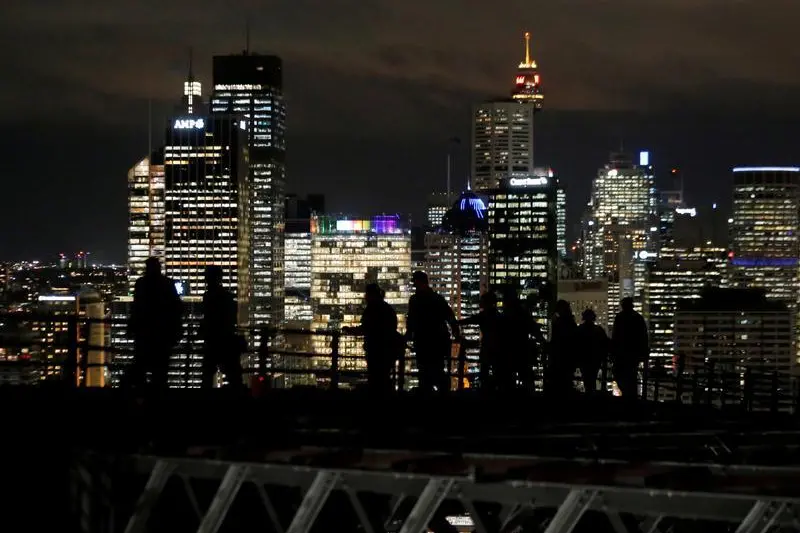PHOTO
SYDNEY - A global trade war was a "significant risk" to the world economy though Australia's shrinking current account deficit meant it was less vulnerable to external shocks, the deputy governor of the country's central bank said on Tuesday.
Australia's net foreign liabilities as a percentage of gross domestic product have declined over the past decade to their lowest since the early 2000s, Reserve Bank of Australia (RBA) Deputy Governor Guy Debelle said in Canberra.
Most of that debt is held in Australian dollars, making the local currency an important shock absorber.
At the same time, Australia's large equities investments overseas have increased remarkably and are all held in foreign currencies.
"The external accounts do not constitute a source of vulnerability and have become increasingly resilient over the past 30 years," Debelle said in a speech.
"If you look at the balance sheet of the country as a whole, Australia has a net foreign currency asset position," he noted.
"Hence when the exchange rate depreciates, the value of net foreign liabilities actually declines rather than increase. To reiterate, this allows the exchange rate to play the important role of shock absorber to external shocks."
The remarks come as financial markets have been rattled by fears the tit-for-tat tariff escalation, which has already hurt global exports and manufacturing, could tip the world into recession.
Global investors have been on edge since Friday when the United States slapped a 5% additional duty on $550 billion in targeted Chinese goods, hours after Beijing unveiled retaliatory tariffs on $75 billion worth of U.S. products.
The Aussie dollar AUD=D3 has fallen more than 4% so far this year to as low as $0.6677, a level not seen since early 2009.
Debelle said the existing rules-based global trading system has delivered "sizeable benefits" for global growth and welfare, despite some flaws.
"Australia has clearly been a major beneficiary of that system. The current threats to the system are a significant risk to both Australia and the world," Debelle said.
(Reporting by Swati Pandey; Editing by Sam Holmes) ((swati.pandey@thomsonreuters.com; +61 2 9321 8166; Reuters Messaging: swati.pandey.thomsonreuters.com@reuters.net; twitter.com/swatisays))





















